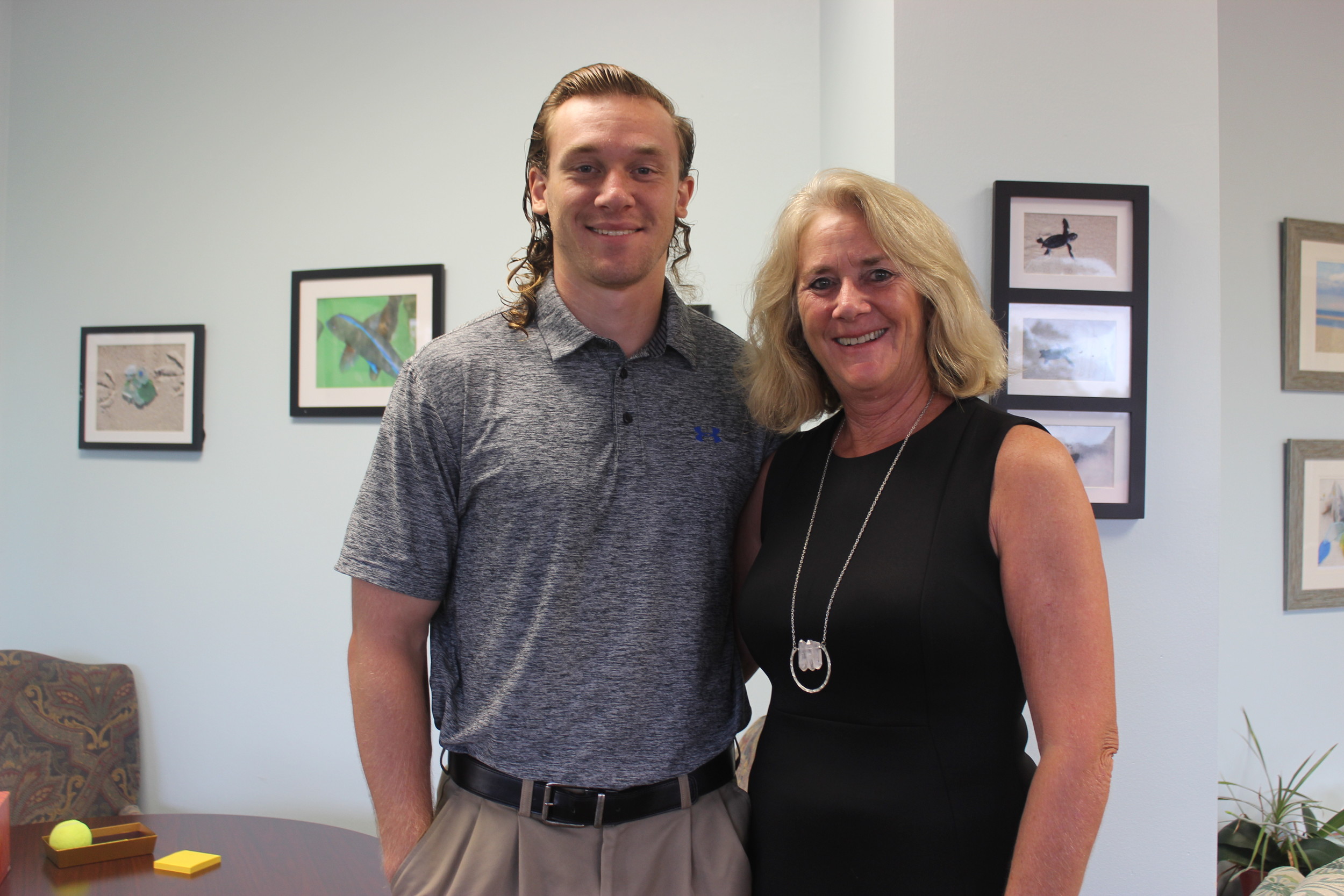Cutting for a cause
Son of Bolles Lower School Ponte Vedra Head to donate his hair for cancer survivors
Taylor Rush had just turned 5 years old when his mother was diagnosed with stage 3 breast cancer.
Fast forward 20 years, and Rush is in the process of growing out his hair to be donated to make wigs for breast cancer survivors for the second time.
“I didn’t think I was going to do it again, but then I figured I might as well,” said Rush, whose mother – Peggy Campbell-Rush – is head of Bolles Lower School Ponte Vedra.
This time, Rush will be donating a ponytail’s worth of hair to the Pantene Beautiful Lengths program. Launched in 2006, Beautiful Lengths is a partnership between Pantene and the American Cancer Society. The two organizations have teamed up to make and distribute real-hair wigs to cancer survivors. More than 800,000 ponytails have been donated to date.
A physical education teacher at San Jose Episcopal School, Rush recently relocated to Jacksonville from New Jersey, where he was attending college. This is his first year teaching. He told the school of his plans to grow out and donate his hair and said the staff has been very supportive of his efforts.
“They’re allowing me to grow it long and then I think that they might work it into an assembly, so I’ll donate it then in front of the staff and students,” Rush said. “They’ve been extremely supportive.”
Rush said he was inspired to donate his hair after his sister, Morgan Rush, donated her hair when she was in college. She has since donated her hair two more times, once in a very ceremonious fashion alongside her brother, who was donating his hair for the first time.
In the fall of 2014, the siblings set sail with their mother, assistant executive dean of Semester at Sea, for a three-month college abroad program. While at sea, Campbell-Rush dressed up as King Neptune for Neptune Day. Grasping a pair of scissors in lieu of a trident, she snipped a ponytail’s worth of hair from both of her children’s heads as a crowd of staff and students cheered.
That the siblings had the opportunity to share in the experience of cutting their hair the same day, was something that was really special, according to Rush. They ended up inspiring 15 other students on that trip to donate their hair as well.
Breast cancer awareness
Campbell-Rush was just 43 years old when she was diagnosed with triple negative stage three breast cancer. She chose to have a mastectomy and underwent months of chemotherapy.
“At that point, they didn’t know what the prognosis (was) and how long I was going to live,” she said.
She chose not to have reconstructive surgery at that time, opting instead to return home to her three young children as quickly as she could.
The chemotherapy was tough on her. It caused her to lose all of her hair and interrupted her short-term memory, causing her to become disheartened and increasingly frustrated when she was trying to perform daily tasks.
Just 18 months after her diagnosis, her mother was diagnosed as well. Fifteen months later, her father was also diagnosed with breast cancer.
“Both my father and I had the BRCA 1 and 2 test and although we have a mutation somewhere in the gene cycle, it wasn’t one of those,” Campbell-Rush said. “So we’re not quite sure where the whole family thing came from – we’re all athletes, we have jobs we love. I don’t know. Just luck of the draw, I guess.”
Her cancer was diagnosed with a mammogram. Because the cancer was close to her chest wall, it was undiagnosable by a simple breast exam. She credits the mammogram with saving her life and encourages others not to dismiss the importance of getting them.
“A lot of people are dubious about whether you should get a mammogram or not,” she said. “I kind of err on the side at least having a baseline so if you see changes, it can be monitored.”
In all, she feels that awareness is key and is pleased about the spread and scale of breast cancer awareness.
“I really feel that the awareness piece has grown so much because realistically, you either are somebody with breast cancer, you know somebody with breast cancer, or you’re related to somebody with breast cancer," she said. "It touches everybody in almost every spectrum,”







